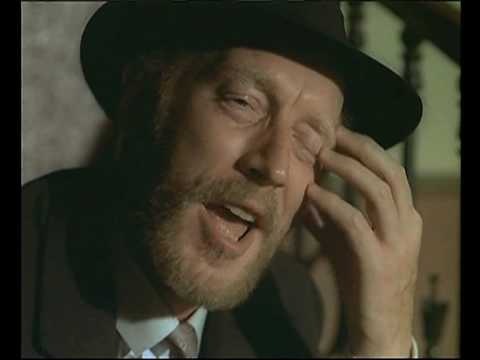The easy explanation for the enduring appeal of Herman Hesse is that he offers hope and romance.There is a pushing back against the seduction of acquisition and competition; the wrestling over scarce resources and the Cain and Abel scenario. Also there is a hostility to technological progress, that sidesteps the pitfalls of romanticism and an affirmation of the power of tuition which meanders towards a de-nationalization of identity and its relief of the burden of partisanship, conformity and patriotism.War is seen as being the culmination of the surrender of the European spirit to the myth of technological progress and there is a deep unease with the bourgeois world but not traumatic enough to withdraw completely from it.

That history is detailed in Trevor Ravenscroft’s “Spear of Destiny,” that deals with the Grail Legend and its influence on the Ariosophists in 1800′s Germany that were a prime Philosophical/Occult root of the Nazis’ Third Reich such as the egomaniacal Ariosophist Composer Richard Wagner whose esoteric Operas and imagery influenced the Nazis from their outset far more than Wagner’s pupil who later rejected him and that movement, Friedrich Nietzsche, who was/is the Harry Haller character in Steppenwolf in part beyond author Herman Hesse. So what does this all mean??? Read More: http://therr9.wordpress.com/
But, there are darker, deeper explanations of which the clues are oddly enough, mostly found in the wholly Germanic, hopelessly dated mass called Steppenwolf. Oddly, two of the leading characters in Steppenwolf are Johann Wolfgang von Goethe and Mozart who appear as ghosts in dreams. The rejection of a communal life based on anxiety, fear and opportunism is reiterated through the character of Haller in Steppenwolf, in which his outsider status is confirmed when a young professor describes Haller as a traitor to his country because he had argued that Germany was just as much to blame as the other countries for the First World War. The professor is characterized by his ignorance of social affairs, his uncritical acceptance of jingoism, and his dislike and racism towards communists and Jews

Chris Landreth:“Steppenwolf” (1987). I really learned the art of brooding after reading way too much Hermann Hesse during this time. This is my take on Harry Haller, the daddy of metaphorical werewolves everywhere. It’s done in pastel and a Bic ball-point pen. Read More: http://films.nfb.ca/the-spine/blog/?paged=2
In his last novel, The Glass Bead Game, Hesse created alternative enlightened communities and dealt with the question of how they might relate to the world at large. His novels retain his well known rejection of the spiritual vacuity of modern life, but overcome the individualistic disengagement implicit in his earlier work. The appeal is on the utopian elements of his work on alternative community in particularly The Glass Bead Game, set in the monasticlike society of Castalia in the twenty-third century.
Though he deliberately creates a dysfunctional utopia, he retains a utopian striving for the creation of a society embodying ideals of intellectual, aesthetic and spiritual refinement, while avoiding the concept that it can be pre-ordained to assume a particular form.Its always hard to determine whether this is a pessimistic utopia or not.There is an inner tensions between two tendencies: a positive optimistic utopianism and a negative utopian pessimism with redemption as a wild card in between. Hesse presents an open dialectic which recoils from identifying the necessary structures of an ideal ethical community but emphasizes the need to continue the struggle for the transformation of values. His ideas on alternative community have a strong affinity with the ethos of much of the new social movement activity which developed at the time when his work achieved cult status in the mid to late 1960’s.

Steppenwolf. Hesse:"Without really wanting to at all, they pay calls and carry on conversations, sit out their hours at desks and on office chairs; and it is all compulsory, mechanical and against the grain, and it could all be done or left undone just as well by machines; and indeed it is this never-ceasing machinery that prevents their being, like me, the critics of their own lived and recognizing the stupidity and shallowness, the hopeless tragedy and waste of the lives they lead, and the awful ambiguity grinning over it all. And they are right, right a thousand times to live as they do, playing their games and pursuing their business, instead of resisting the dreary machine and staring into the void as I do, who have left the track Read More: http://robotsandspaceships.blogspot.com/2009/11/excerpt-from-steppenwolf-by-hermann.html
The title, Steppenwolf had a certain magic. It is about a middle aged man in a dismal room, far from home and mother. He has decent clothes and a little money, but he is depressed and leery of women. It seemed to resonate with the 60’s culture since America teemed with people who were homesick in bittersweet ways , and Steppenwolf was one of the most profound books about homesickness ever written. He was a bit of a freak for acknowledging modern technology and hating it. There is a fantasy about two men who climb a tree by a road. They have a rifle. They declare war on all automobiles and shoot them as they come by.
Nobody in Steppenwolf has a telephone, although the cast is in a rich city after the war, doing the shimmy to jazz. The hero has no radio in his room, despite the swooning loneliness, but there are radios around, because he dreams of listening to one in the company of Mozart. The Concerto Grosso in F Major, by Handel, is being broadcast from Munich. The hero says this about it, marvelously: “the devlish tin trumpet spat out, without more ado, a mixture of bronchial slime and chewed rubber; that noise that owners of gramophones and radios have agreed to call music.”

--A tragic fable of a life of quiet desperation A noble attempt to bring the Herman Hesse novel to the screen, enlivened by a complex and poignant performance by Max Von Sydow as the Steppenwolf, Harry Haller. His efforts are considerably aided by gloomy lighting and long meditative takes which convey the burden of the Steppenwolf's world view as a self proclaimed "outsider". It validates the asocial Steppenwolf, a misguided hero/martyr wanting to transcend personal inadequacy rooted in the disorder of the everyday world: his redemption comes through a woman who leads him into an enchanted magical world. Experience, with art often the privileged vehicle, might be better understood as redemptive if read in interpretive rather than metaphysical terms- i.e. it is a product of engagement with and not transcendence of or withdrawal from the social. Harry Haller reminds one of the "steppenwolf" in Apted's documentary "7 Up", Neil.---Read More: http://www.learmedia.ca/product_info.php/products_id/989 image:http://wn.com/Lobo_Estepario
“In many respects Hesse appears to be a romantic writer pining for a lost age of purity and excellence. This is expressed in his celebration of natural beauty and rural tranquility, his attachment to eighteenth century literature and music, and his hostility to technological `progress’. It is no surprise that in the futuristic society described in The Glass Bead Game there appears to have been no significant technological advance from our period, with only the occasional mention of a car or train . But Hesse was also a nonconformist rebel concerned for the fate of those who did not comply with the prescribed values of the society they inhabited. He bemoaned the pressures generated by life in modern capitalist society and the instrumental and often callous behavior which threatened to engulf the world. In response he espoused the pursuit of self-understanding through grasping the spiritual insights offered to us in tragedy and the illusory nature of prestige and wealth. Occasionally he expressed sympathy with the ideal of socialism and even admired Marx, considering his critique of capitalism `essentially incontrovertible’ .” Read More:http://www.questia.com/googleScholar.qst?docId=5001312061
ADDENDUM:
Martin Buber: …”the realization of the divine on earth is fulfilled not within man but between man and man… it is consummated only in the life of true community…the true place of realization is community, and true community is that relationship in which the divine comes to its realization between man and man…” .it is important to understand that for buber, relationships went beyond the realm of the personal encounter. relationships encompass the manner in which we live within the social and economic structure of society, and it includes and extends towards the realm of nature. for buber, the actualization of dialogical relationships in society is manifested through communities organized along the lines of religious libertarian socialism.( hune margulies)Read More: http://dialogicalecology.blogspot.com/
————————————————————
We learn from the second part of the book that Haller feels a duality of personality. There is the man, who craves the comfort of a bourgeois existence, and the wolf, who threatens to predominate and must constantly be held in check, who despises the petty pleasures of the world, and the stilted civility of a middle class household. This duality surely mirrors Jung’s division of the self into the conscious and the unconscious, one manifestation of which represents the primitive man (the wolf / unconscious mind), who is driven by strong instincts, and the modern man (the man / conscious mind) who has learned to control those instincts in the interests of social inter-action, but who has also lost something in the process. Read More: http://pursewardenblog.blogspot.com/2008/08/steppenwolf-by-hermann-hesse_10.html
As Jung says in Man and his symbols:
“I am not denying that great gains have resulted from the evolution of civilized society. But these gains have been made at the price of enormous losses, whose extent we have scarcely begun to estimate.”
The third part of the book increasingly makes clear that Haller’s obsession with this duality is both irrelevant and rather laughable. Rather than being composed of two separate factors, his mind and personality are in fact a complex assembly of a large number, later visualised as a mirror breaking into many shards of glass. Could he but come to recognize and accept this, he would be happy but, as the ending makes clear, he cannot, and that is his real tragedy. Read More: http://pursewardenblog.blogspot.com/2008/08/steppenwolf-by-hermann-hesse_10.html





 COMMENTS
COMMENTS